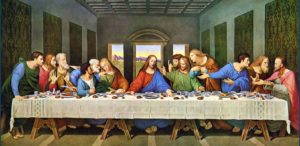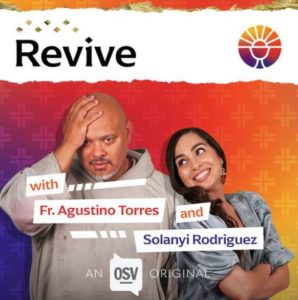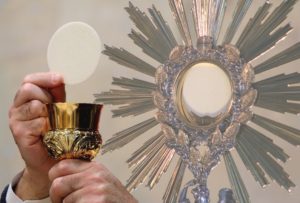Pope Benedict XVI’s Legacy of Love for the Eucharist

After leading the Church as our Holy Father from 2005 to 2013, Pope Benedict XVI’s death on the last day of 2022 has sparked prayer and reflection worldwide. However, our youngest Catholics likely don’t know him very well. Most children either weren’t yet born during his pontificate or won’t have memories of their own. In remembrance of his life, parents and teachers can introduce children to the great work that he did for the Lord and His people.
The Legacy of Pope Benedict XVI

One of the legacies that Pope Benedict leaves behind is the vast collection of his writings. His books and encyclicals are treasures worthy of study and prayer. The Post-Synodal Apostolic Exhortation Sacramentum Caritatis, Sacrament of Charity, highlights the gift of the Holy Eucharist. Pope Benedict writes that through the Blessed Sacrament, God reveals his love and strengthens us to love those around us. He says, “The sacrament of charity, the Holy Eucharist is the gift that Jesus Christ makes of himself, thus revealing to us God's infinite love for every man and woman” (SC, no. 1). The text also connects the Eucharist to all other sacraments, teaches about the liturgy and participation in the Holy Mass, and encourages a Eucharistic life of mission and service.
"Let the Children Come to Me"

While reading this apostolic exhortation (or any of Pope Benedict’s books) might be a few years down the road for most children, we can still bring the wisdom of his writings to their level. Using short quotes that are rich in meaning, kids can learn from Pope Benedict XVI about the precious gift we have in the Eucharist. Speaking of the well-known Scripture passage from John 3:16, Benedict says, “These words show the deepest source of God's gift. In the Eucharist Jesus does not give us a ‘thing,’ but himself; he offers his own body and pours out his own blood. He thus gives us the totality of his life and reveals the ultimate origin of this love” (SC, no. 7).
Words like these speak richly about our belief in the True Presence of Jesus in the Blessed Sacrament and are perfect for reflection, especially as children are preparing to receive Holy Communion for the first time or the hundredth time. Pope Benedict also reminded us that something as wonderful as the Eucharist is not meant to be kept a secret. We should desire to share the good news of our faith with others. A child’s natural enthusiasm and joy can be used to reveal the love of God to everyone around them. Pope Benedict writes, “The love that we celebrate in the sacrament is not something we can keep to ourselves. By its very nature it demands to be shared with all. What the world needs is God's love; it needs to encounter Christ and to believe in him. The Eucharist is thus the source and summit not only of the Church's life, but also of her mission” (SC, no. 84).

This month, as our culture surrounds us with messages of love in the form of hearts and flowers and chocolate, let’s take a moment to share with our children the greatest gift of love we have received, Jesus himself in the Sacrament of the Holy Eucharist.
“In the sacrament of the Eucharist, Jesus shows us in particular the truth about the love which is the very essence of God.”
Pope Benedict XVI
Family Activity Ideas
- Use the Eucharistic quote coloring pages included in this post with your children. Read the quote and talk about Pope Benedict’s words. Identify the monstrance, chalice, and host. Connect the quote with the love of God and his gift of the Holy Eucharist. [Coloring Sheets: English #1, #2, #3 | Spanish #1, #2, #3]
- Color the quote pages and hang in your home, using them as a reminder of how Jesus shows us his love through his True Presence in the Eucharist.
- Color the Sacred Heart cards and give them away like Valentines. Maybe stick a few in the mail to family members and hand one to your priest and deacon after Mass.
- Visit your parish church, kneel before the tabernacle, and say the Prayer for the Faithful Departed for the soul of Pope Benedict XVI: Eternal rest grant unto him, O Lord, and let perpetual light shine upon him. May he rest in peace. Amen. May his soul and the souls of all the faithful departed, through the mercy of God, rest in peace. Amen.

Questions for Discussion
Use these questions to prompt conversation with your children, maybe while using the Eucharistic quote coloring pages or on the drive home from Mass.
- What are some ways that God shows you that he loves you?
- Christ is wholly, truly, really, and substantially present under the Eucharistic species at Mass because he loves us! What can we do to show that we love him in return?
- Around St. Valentine’s Day this month we hear and see lots of things about love. How do you think Jesus wants us to love the people around us?

Resources for Kids
Help your kids get to know Pope Benedict XVI using these children’s books. Look for copies online or request them from your local library:
- Friendship with Jesus: Pope Benedict XVI Talks to Children on Their First Holy Communion edited by Amy Welborn, Ignatius Press
- Joseph and Chico: The Life of Pope Benedict XVI as Told by a Cat by Jeanne Perego, Ignatius Press
- Be Saints! An Invitation from Pope Benedict XVI by Amy Welborn, Ignatius Press
Learn more about the life of Pope Benedict XVI with the timeline and coloring pages offered by Catholic Paper Goods:
- Pope Benedict Biographical Activity Page from Catholic Paper Goods
- Pope Benedict Coloring Page from Catholic Paper Goods
Resources for Adults
You can read the full text of the Post-Synodal Apostolic Exhortation Sacramentum Caritatis here.
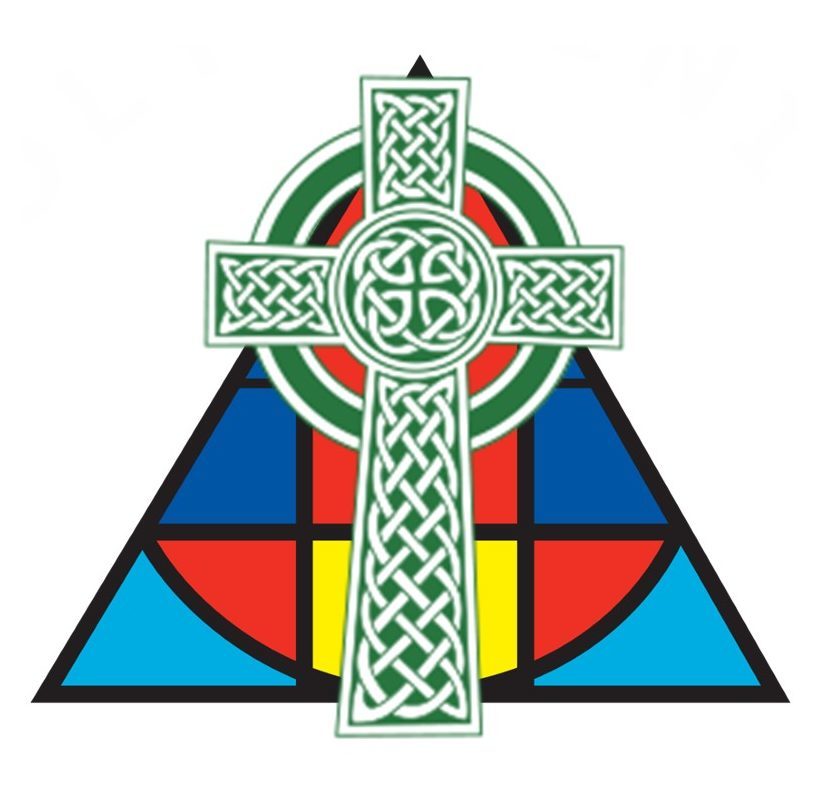





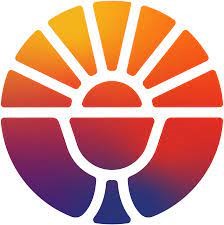
 What is the Eucharist?
What is the Eucharist?